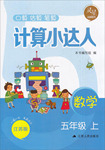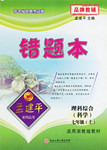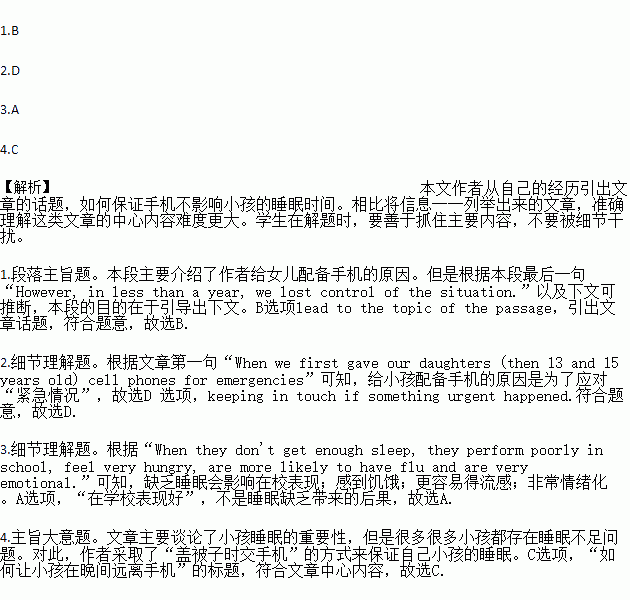题目内容
When we first gave our daughters (then 13 and 15 years old) cell phones for emergencies, we made them sign an agreement in which we strictly ruled where and when they could use their phones and even we could check their every text message. However, in less than a year, we lost control of the situation.
There is a terrible reality that almost every teenager sends between 50 to 100 messages a day - some as many as 300, and 70% of teenagers admit hiding their online behavior from parents. According to a study, teenagers need as much sleep or more than they get as children - that's between 9 and 10 hours of sleep a night, but only 20% of them are getting it. When they don't get enough sleep, they perform poorly in school, feel very hungry, are more likely to have flu and are very emotional.
Recently, we adopted a "check in at tuck in" (盖被子时交手机) rule at our house, an idea I learnt from a parenting expert. It is very simple. At bedtime, when we "tuck in" our children for the night, they must "check in" their phones. They will probably bargain like this:
"But I use it for my alarm clock."
"I'll wake you up."
"My friends might need me."
"If there is an emergency, they can call the fixed phone and I'll wake you up."
A few weeks ago, when I drove my younger daughter to a friend's house for a sleepover, she handed me her phone. "I guess I should check this in now, since you won't be there to tuck me in tonight. I'll call you from Ellie's phone if I need you."
1.The first paragraph that the writer writes is to______.
A. show the writer's family life
B. lead to the topic of the passage
C. advise to buy cell phones for children
D. introduce the writer's two daughters
2.The cell phones were bought for children in hope of_______.
A. controlling their online behavior
B. working hard through the Internet
C. replacing alarm clocks with cell phones
D. keeping in touch if something urgent happened
3.Which of the following is NOT caused by sleeping less?
A. Performing well in school.
B. Feeling very hungry.
C. Being easy to have flu.
D. Being very emotional.
4.Which is probably the best title for the passage?
A. How to Take Control of Children
B. How to Help Children Sleep Well at Night
C. How to Get Children off Cell Phones at Night
D. How to Assist Children with Cell Phones
 灵星计算小达人系列答案
灵星计算小达人系列答案 孟建平错题本系列答案
孟建平错题本系列答案
